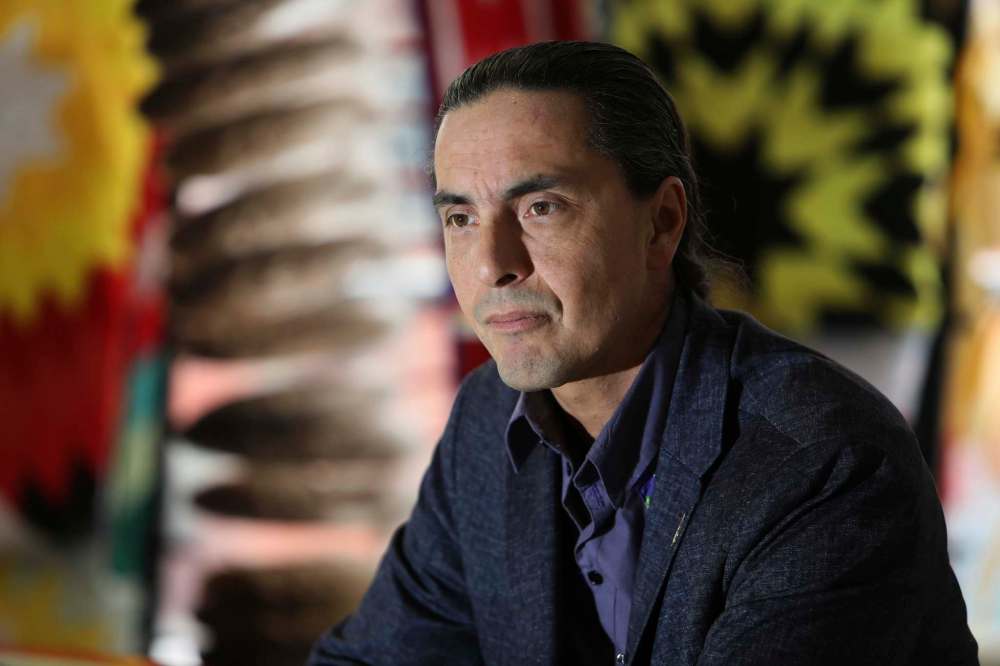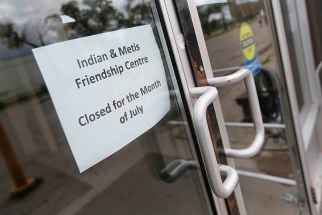Pre-pay cab fares shortchanges safety issues: AMC
Read this article for free:
or
Already have an account? Log in here »
To continue reading, please subscribe:
Monthly Digital Subscription
$0 for the first 4 weeks*
- Enjoy unlimited reading on winnipegfreepress.com
- Read the E-Edition, our digital replica newspaper
- Access News Break, our award-winning app
- Play interactive puzzles
*No charge for 4 weeks then price increases to the regular rate of $19.00 plus GST every four weeks. Offer available to new and qualified returning subscribers only. Cancel any time.
Monthly Digital Subscription
$4.75/week*
- Enjoy unlimited reading on winnipegfreepress.com
- Read the E-Edition, our digital replica newspaper
- Access News Break, our award-winning app
- Play interactive puzzles
*Billed as $19 plus GST every four weeks. Cancel any time.
To continue reading, please subscribe:
Add Free Press access to your Brandon Sun subscription for only an additional
$1 for the first 4 weeks*
*Your next subscription payment will increase by $1.00 and you will be charged $16.99 plus GST for four weeks. After four weeks, your payment will increase to $23.99 plus GST every four weeks.
Read unlimited articles for free today:
or
Already have an account? Log in here »
Hey there, time traveller!
This article was published 12/06/2019 (2372 days ago), so information in it may no longer be current.
The Assembly of Manitoba Chiefs has panned a City of Winnipeg pilot project in which customers would be forced to pay a portion of cab fares upfront, noting the project does nothing to make cabs safer for vulnerable First Nations passengers.
The concept of paying a portion of the fare before the meter starts running is the city’s solution to safety concerns stemming from fare disputes and allegations of racial profiling.
It solves neither problem, AMC said Wednesday, ahead of a June 26 deadline for public consultations before the project rolls out this summer or early fall.

“The taxi pre-payment pilot appears to be working toward a pre-determined conclusion: to solidify payment (of fares), instead of focusing on how existing taxi services continues to adversely impact First Nations women,” Grand Chief Arlen Dumas said in a statement.
Winnipeg taxis will be allowed to charge a portion of the fares at the start, rather than the end, of the ride. Passengers who refuse would be told to leave the cab.
Designed to protect drivers from passengers who skip out on paying fares, the project will last about nine months. Upfront charges will cover a flat fee for entering the vehicle, plus a portion of the journey; the passenger pays the difference at the destination.
The city also wants to add a fee that would be charged to every passenger during certain hours, but it has yet to announce details.
The province-wide organization for the 60-plus First Nations in Manitoba said the city should instead be rolling out cultural sensitivity training for cab drivers.“The City of Winnipeg should stand up to the powerful taxi lobby, and instead of seeking input to justify pre-collection of fares. Winnipeg Mayor Brian Bowman and city council should take a leadership role on the issue of safety and prevent violence against First Nations women when taking taxis.”– Arlen Dumas
“AMC continues to hear from First Nations women that they still have concerns with using taxis, including harassment and inappropriate behaviour,” the grand chief said.
The AMC statement reviewed the recent uneasy history between the city’s cab industry and the Indigenous community, noting volunteers started ride-sharing services in 2016, in response to complaints on social and mainstream media about alleged abuse of Indigenous females at the hands of cab drivers. (Ikwe Safe Rides remains in operation.)
Six ride-hailing services operating in the city — Cowboy Taxi, Hire PTP, InstaRyde, My Cab, ReRyde and TappCar — are not part of the pilot because they run fares through passengers’ credit cards via apps.
Dumas noted last week’s final report into the National Inquiry into Missing and Murdered Indigenous Women and Girls made related recommendations, including one for hospitality industry workers (including cab drivers) to be trained to identify and respond to sexual exploitation and human trafficking.
“The City of Winnipeg should stand up to the powerful taxi lobby, and instead of seeking input to justify pre-collection of fares. Winnipeg Mayor Brian Bowman and city council should take a leadership role on the issue of safety and prevent violence against First Nations women when taking taxis,” Dumas said.
Grant Heather, city manager of vehicles for hire, called AMC’s concerns “very legitimate.”
”We’ve discussed this at length at our advisory committee group,” he said in phone interview Wednesday.“We’re looking for this to become a habit, much like it is with (pre-paying) gas stations.”– Grant Heather
“This is something I took forward in the safety and security report… that was approved by (city) council in February. One of our recommendations was a refresher training course.”
Meanwhile, the pilot project is going ahead.
“The way we frame this… is to try it out. It doesn’t mean we’re going to implement it permanently. We’re looking for this to become a habit, much like it is with (pre-paying) gas stations,” Heather said.
alexandra.paul@freepress.mb.ca













